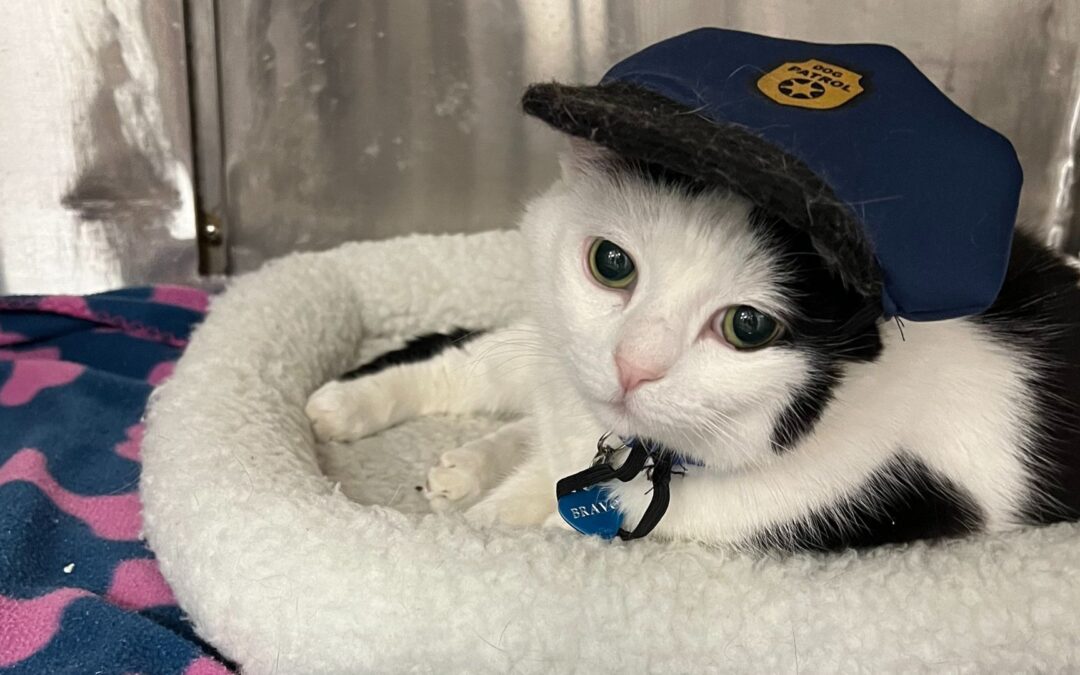Before the Storm
- For each pet, get a carrier or crate that is large enough to allow your pet to stand and turn around. Help your pet to adjust to being in the carrier.
- Be sure each pet has current vaccinations, especially Rabies and it is wearing its collar with a current animal license tag and ID. Keep a leash handy. We also recommend a second method of identification such as a tattoo or implanted microchip. Have a current picture of your pets.
- If you know you will stay home, prepare a safe area for your pet during the storm. This area should be an easily cleaned quiet room or bathroom away from windows.
- If you know you will evacuate to a public shelter, arrange to board your pet, as public shelters DO NOT allow pets. We will provide priority boarding for our existing clients.
- If you know you will evacuate to a hotel/motel, call several to locate one that allows pets.
- For each pet, have a week’s supply of food, treats, and water. To handle pet waste, have enough newspaper, plastic bags, cleaner, and disinfectants.
- Have a week’s supply of your pet’s medications.
- Spay and/or neuter your cat and dog because they may escape and become pregnant or impregnate other animals.
Remaining at Home During The Storm
- Noise from the storm can frighten a pet. If possible, keep the pet within sight of the family.
- Keep a good supply of newspapers for your pet’s sanitary needs. For easier cleaning, keep the pet in the bathroom utility room or enclosed garage.
Evacuating Home Without Your Pet
- Remember Public Shelters will not take any kind of pet!
- The Animal HealthCare Center provides safe boarding during storms on a first come basis
- Bring your pet indoors to the prepared safe area.
- Leave food in sturdy containers accessible to pets.
- For drinking water, fill the bathtub or fill a non-spillable container. If you leave your pet in the bathroom, disinfect the toilet bowl, flush several times, and leave the lid open.
- Make sure your pet wears a collar with a current ID and rabies tag. Use a break-away collar for cats.
- Birds must eat daily, board if possible. If not, put special food dispensers in the cage. Cover the cage to keep the bird quiet.
Protecting Your Pet After A Hurricane
- Keep your pet indoors after the hurricane. If you take your pet outdoors, keep it on a leash.
- Pets are more easily lost and confused when outdoors after a storm because of altered scents and landmarks.
- There may be fallen power lines and reptiles brought in with flood water that could endanger your pet.
- Do not allow your pet to drink water or eat food that may have been contaminated.

